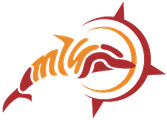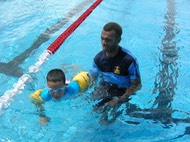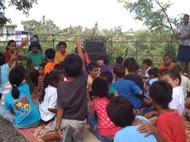How we teach
We are like a number of schools that talk about 'child focussed education' which translates into stronger emphasis on individualised educational programmes, not forcing the pace of a child's education and making the educational programmes multi-sensorial.
If you have heard of or had experience in Montessori or Waldorf-Steiner schools then we are in a very similar vein. We differ only by adding a developmental psychological theory as a framework with which to guide us in our pedagogy and assessment.
The theory was originally developed by Harvard psychologist Howard Gardner called Multiple Intelligence theory. This theory in a nutshell states that we cannot be assessed by our intelligence on a single measure. Instead we as individuals have a number of different intelligences - ways of understanding and processing information about the world.
This helps us in framing a curriculum, pedagogy and assessment that we believe with develop the maximum holistic potential in children.
Many children who are labelled 'learning disabled' in a traditional 'chalk & talk' school thrive because they finally get to express their intelligence through strengths that are rarely formally acknowledged. Strengths such as being:
- musical
- athletic
- being able to understand other people easily
- having strong spatial awareness
- being able to naturally classify things, natural or artificial.
We encourage children to use their strengths to bridge into the more traditional schooling topics such as language and maths.
Clearly this is a big topic. If you would like to learn more about what makes us unique, please download our school brochure.
What we teach
We broadly follow a New Zealand curriculum. Our teachers have had years of experience with this curriculum but it may help to explain why it is our preferred choice.
The NZ curriculum sets out broad teaching areas which they call "Essential Learning Areas" which are the ones that we feel are important.
- Language
- Maths
- Science
- Technology
- Social Sciences
- Arts
- Health & Physical Well Being.
- Second language instruction
However, unlike many national curricula, this one provides a flexible route to stated achievement objectives. In other words schools are free to choose the path that they feel they can best bring their children to these stated objectives. That fits in very well with us because we can develop our own materials and choose our own texts that are more appropriate to our local context.
Of course, unlike the NZ curriculum, we do of course borrow from the Fiji curriculum where it relates to the context, society and history of Fiji where we live.


